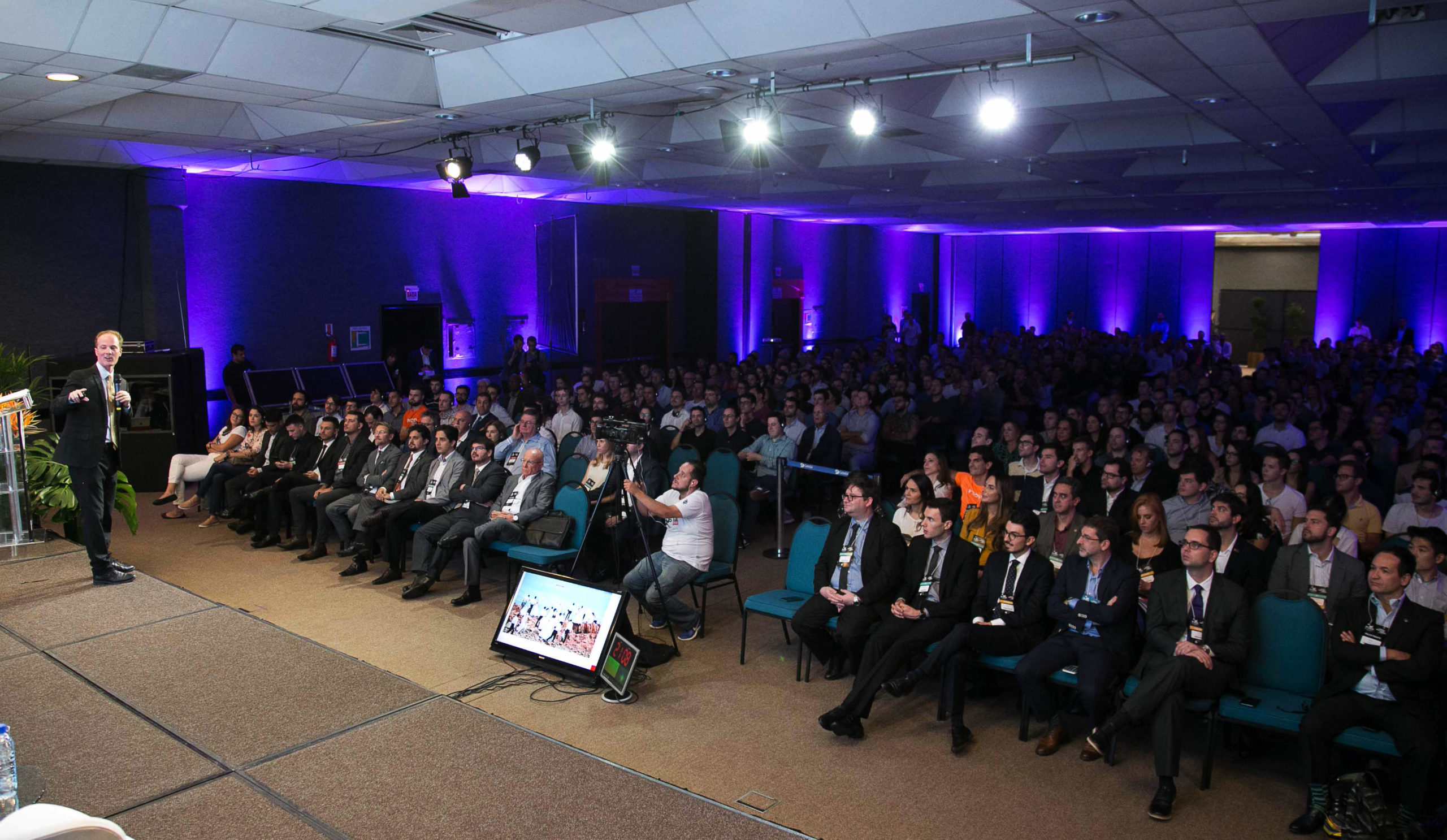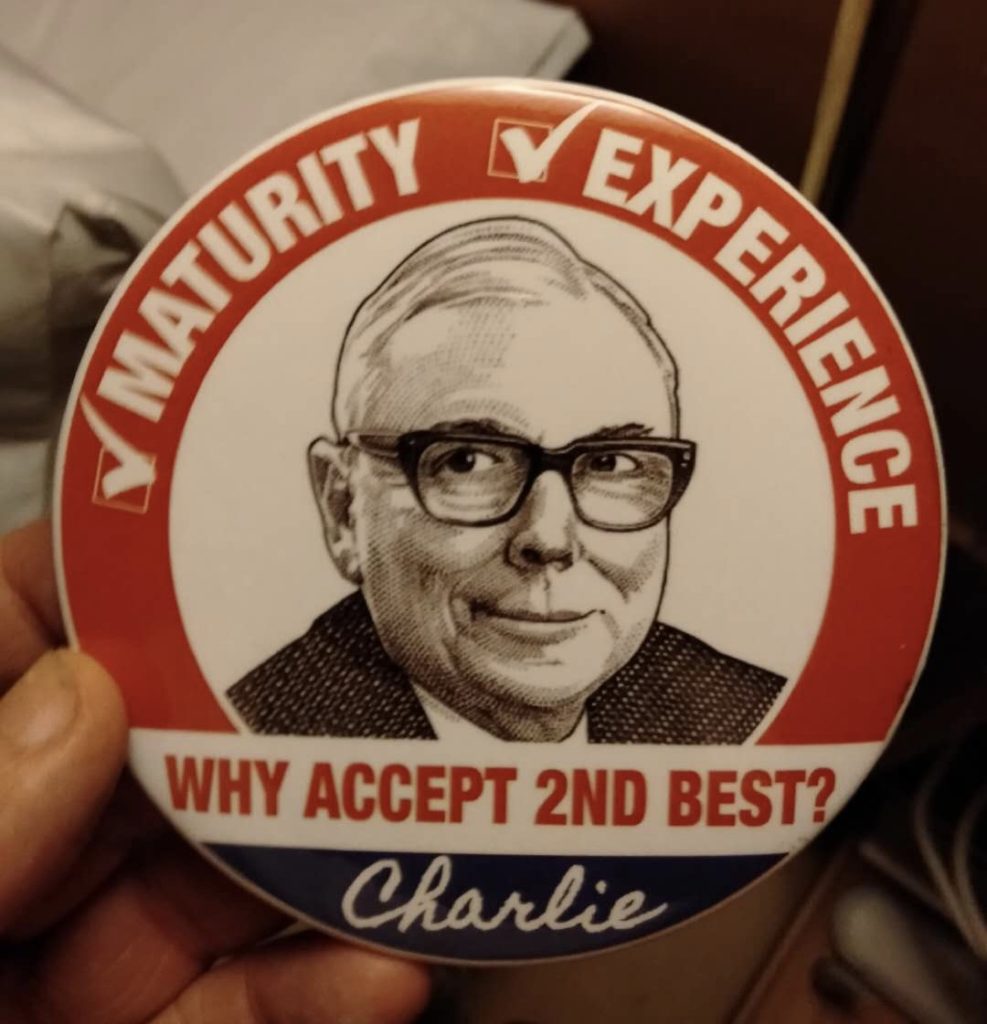One of things I like about Warren Buffett is he is very open about his life. He talks a lot about his experiences, his wife, his father and his friends. And when students and younger folk ask him business questions, he often answers with personal advice. For example, at one of the lunches we had, a student asked him what was his best investment? He answered that it was time spent with his friends.
And he wasn’t being trite. It was actually a pretty logical answer.
Capital and time are your two resources in life. And while there is an entire industry about allocating capital, people don’t think that much about allocating time. Buffett’s argument (I think) was that time spent with friends has a huge return because the people you spend time with change you. And if you choose them carefully, they can make you a much better person. So he was actually giving an investment answer.
Why Does Everyone Like Tom Murphy?
Buffett often talks about Thomas Murphy, the former Chairman of Capital Cities / CBS and now a Berkshire Hathaway Board Member. He says Tom is someone virtually everyone likes. And he is someone Warren said he would basically do anything for. And being universally liked is not a small thing. It probably means you are a good person. It is also really effective in business.
So I was thinking about this. How does Tom do this? What makes him a really good (or at least liked) person? My take-away from Buffett’s comments was that Tom excels at bringing out the best in people. He makes the people around him better.
Myself, I am not naturally good at this. I tend to be pretty quiet in person. I’m a disaster at dinner parties. So writing, speaking and teaching is how I try and help people. But I’m trying to become better at this so I’ve been thinking about Buffett’s comments.
Here are 4 tips (from Buffett) on becoming a better person.
#1: Ask “Would This Person Hire Me?”
Warren mentioned one trick is to ask yourself “would this person hire me?” When you meet and talk with someone, would they hire you after the discussion? Have you brought out something positive in them? Were you helpful? Are you someone they would really like to have on their team or project?
Hiring someone is pretty big vote of confidence. So that’s a nice standard I think.
#2: Ask “Would My Colleagues Invest In Me?”
Buffett often poses the following question to MBA students:
If you could invest in only one of your fellow classmates, who would you choose? If you could buy 10% of the future earnings of just one classmate, who would you choose? What would you look for?
It͛’s a pretty fun question to think about. Would you choose the person with the highest IQ? The person with the highest grades? The person with really successful parents?
His point was that you would probably not look at such things. You would think about personal qualities like who is the hardest working student? Who is the one with the best daily habits? Who is the person that everyone wants to work with?
So that’s a good trick. Try and be the person that everyone would invest in.
#3: Become the Best Version of Yourself, Over Time
One idea he talked about was how you want to always be making small steps towards a better version of yourself. Just change little things. And over time, you try to become the best version of yourself.
And he said a lot of this is simple and under your control. It’s not that hard. You can be a jerk. Or you be fair. You can be curt. Or you can be patient. And so on. These are all qualities you can develop. Basically, he says human behavior is not complicated.
He recommended that you start with one habit to change. Just pick one thing, like being more charitable or patient. And just do that for a month or two. And then maybe add another. And another.
Finally, he mentioned you should hold yourself to “high but not impossible standards”. Don͛’t try to be perfect. Just keep aiming toward a better version of yourself.
#4: Don’t Be Someone Who Turns People Off.
Buffett raised another interesting question which was: Which one of your classmates would you sell short?
That is pretty funny and a great question. He said you would probably sell short the person that turns you and other people off.
Of course, as soon as he said this, everyone (including myself) immediately wondered “is it me?”. And I also immediately thought of a couple things I do that probably turn people off. And that is a great question to ask: are you doing things that turn people off? Do you have a couple of habits? A lot? A few?
Fortunately, changing this is really easy. You just stop doing certain things, which doesn’t even take any willpower. I made a list of things to stop doing on the plane out of Omaha. It pops up on my calendar on the first of every month as a reminder.
A Homework Assignment
Yes, I’m giving you homework. There aren’t that many perks to being a professor. And one is the ability to give homework. Another is you can have unprofessional facial hair.
Here’s the assignment.
- Think of one thing you do that turns people off. And don’t do it for one week. Write it down. Or put it in your calendar as a daily notification.
- Ask yourself “would this person hire me?” before talking with three different people over the next week. Mentally think about this question before you talk. And then see if it changes how you behave in the conversation. Again, write it down or put it in your calendar.
That’s it. Have a great weekend.
-jeff
———-
I write, speak and consult about how to win (and not lose) in digital strategy and transformation.
I am the founder of TechMoat Consulting, a boutique consulting firm that helps retailers, brands, and technology companies exploit digital change to grow faster, innovate better and build digital moats. Get in touch here.
My book series Moats and Marathons is one-of-a-kind framework for building and measuring competitive advantages in digital businesses.
This content (articles, podcasts, website info) is not investment, legal or tax advice. The information and opinions from me and any guests may be incorrect. The numbers and information may be wrong. The views expressed may no longer be relevant or accurate. This is not investment advice. Investing is risky. Do your own research.





